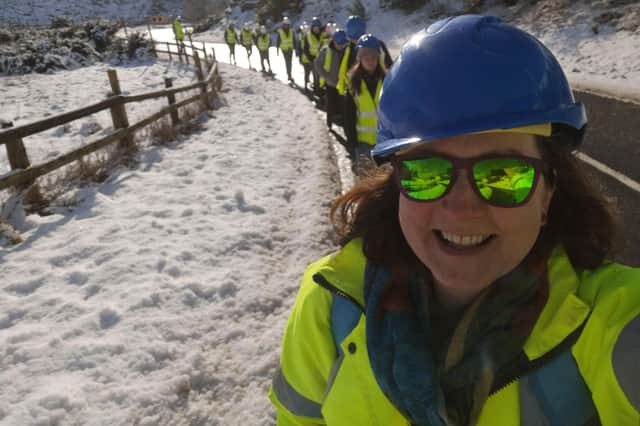Ambition, collaboration, and action are critical ingredients as we move beyond COP26 - Dr Rebecca Wade


This is no exaggeration, humanity is at risk, if we do not urgently deal with the triple threat of climate change, biodiversity loss and pollution, our place on this planet is not guaranteed. Vulnerable countries are already seeing devastating impacts, and Scotland is not immune, our climate is already changing, impacts are occurring here too.
So, why am I optimistic? I feel a momentum related to climate action I have not felt in 25 years of working in environment and engineering sectors. Doors are opening, most world leaders are listening, and promising action, and amazing strides are being made by industry and communities.
Advertisement
Hide AdAdvertisement
Hide AdIn the lead up to, and during, COP26 we saw promises from world leaders. We also saw increasing pressure from the communities they represent, including activism and protests. The national plans, called Nationally Determined Contributions, must turn the ambition of the Paris Agreement (signed at COP21) into meaningful actions, which deliver a just transition, with fair and equitable approaches for people and planet.
Many people see challenges ahead, and certainly they are there, but I see opportunities; to work together, inclusively, at all scales and across all sectors to deliver change and to transition to more sustainable business models.
One of the sectors critical to this transition is engineering, particularly civil and environmental engineering, which is directly linked to the buildings and infrastructure that make up our built environment and impact our natural environment. Around 70 per cent of carbon dioxide emissions can be traced back to infrastructure.
As a Senior Lecturer in Environmental Science at Abertay University, I am dedicated to incorporating sustainability into our civil engineering teaching. I’m proud that, at Abertay we have the only ‘Civil and Environmental Engineering’ degree programme in Scotland. We want our graduates to ‘hit the ground running’ when it comes to tackling the climate challenge.
A few years ago, I started collaborating with the Institution of Civil Engineers (ICE) in Scotland to deliver professional development talks, webinars and public engagement linking environment and engineering, pointing out opportunities for taking a nature-based solutions approach to deliver better, multi-functional solutions. Civil and environmental engineers have a vital role to play in ensuring that we do deliver positive outcomes for climate and community.
Engineers are problem-solvers, we know we have a problem, the climate impacts of our engineering actions, and now we are looking to address that and be part of the solution. More than ever, the engineering profession is getting serious about this challenge, and they understand the importance of working with allied professions to deliver better solutions. This is why I joined ICE as an Associate Member (AMICE). I have been delighted to see the transformation of thinking within the Institution, particularly in the last year as ICE President Rachel Skinner has made it her mission to shape net zero for civil engineers. New president, Ed McCann will continue the work, he will focus on improving infrastructure whilst delivering the United Nation’s Sustainable Development Goals (SDGs) and achieving net zero carbon by 2050.
I’m also part of the Women’s Engineering Society (WES) Climate Emergency Group, who had a presence at COP26, hosting a panel discussion in the COP26 green zone. Additionally, we hosted a series of webinars linking engineering activity to the UN SDGs. In the most recent event we (women engineers from diverse sectors; rail, construction, water management, city resilience and more) challenged ourselves to find the problems, barriers, and solutions within our professional practice to address the climate emergency. These conversations are doing more than raising awareness, they are delivering positive change.
Ambition, collaboration, and action are critical ingredients as we move beyond COP26. We all have a role to play in our personal and professional lives.
We know what we need to do – let’s do it.
Dr Rebecca Wade FRSA AMICE, Senior Lecturer in Environmental Science, Abertay University
Comments
Want to join the conversation? Please or to comment on this article.